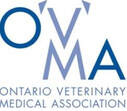Puppy Wellness
Congratulations on your new Puppy, they will bring you so much joy and such a fun addition to your family. The first year of owning a puppy there is a lot going on training, nutrition, vaccines, spay/neuter... We are here to help you manage the first year of puppy parenthood, the first few months in your puppies life are so important and determine what your puppy will be like as an adult. It is our goal to help you have a life long companion and assist you with any issues you may encounter. To get you started have a look at the link below that will outline what is important to teach in the first few months like Socialization, housetraining, Chewing, Obedient training and trust.
10 most important things to teach a puppy
10 most important things to teach a puppy
What to expect in your First year

When you get your puppy it is important to understand what vet care they have already received, so we know where to start. Keep in mind that your puppy needs multiple visits to the vet, as the protocols for vaccines and deworming as spaced apart by weeks/months to fully protect them. Often it is assumed that where you got the puppy from that they had their shots and dewormed that's all you need, viruses and parasites do not work on a one and done approach, here's what to expect and why:
Vaccinations:
You puppy is susceptible to many serious but preventable viruses, this is what vaccinations protect against
All puppies are born with at minimum roundworm, which is passed from the mother directly into the fetus (even if the mother is dewormed regularly there is no way to eliminate the encysted levels in her muscle tissue.) Parasites are super smart and their sole purpose is to survive. Depending on the lifecycle of the parasite we deworm in intervals in order to completely eliminate them. Most deworming meds only work on the adult stage in the gut... parasite have immature stages which can be found throughout the body, where the deworming drugs have no effect. Hence the reason for interval deworming, waiting for them to mature and move to the gut so we can eliminate them.
Deworming Protocols
Under 6 months of age
Ovariohysterectomy and Orchiectomy (Spay and Neuter)
Why:
See these resources for more information Spay or Neuter
Vaccinations:
You puppy is susceptible to many serious but preventable viruses, this is what vaccinations protect against
- Rabies - major concern and kills tens of thousands of people a year
- Canine parvovirus - highly contagious virus that is life threatening to young unvaccinated dogs
- Canine distemper - highly contagious virus that attacks respiratory, gastrointestinal and nervous systems
- Leptospirosis - causes flu like symptoms and cause liver or kidney disease, also zoonotic to humans
- Canine Influenza - highly contagious and the virus that causes kennel cough
- Based on your dogs risks and lifestyle, our vets will customize a vaccine protocol which will be given at 4 week intervals to build up immunity and protection against these virus. Just like covid some vaccines need to be topped up annually or up to every 3yrs.
- It is also important at these 8, 12 and 16 weeks of age the vet would be performing a medical assessment (physical exams) making sure there are no underlying conditions like heart murmurs, skeletal issues like Hip/Elbow dysplasia.
All puppies are born with at minimum roundworm, which is passed from the mother directly into the fetus (even if the mother is dewormed regularly there is no way to eliminate the encysted levels in her muscle tissue.) Parasites are super smart and their sole purpose is to survive. Depending on the lifecycle of the parasite we deworm in intervals in order to completely eliminate them. Most deworming meds only work on the adult stage in the gut... parasite have immature stages which can be found throughout the body, where the deworming drugs have no effect. Hence the reason for interval deworming, waiting for them to mature and move to the gut so we can eliminate them.
Deworming Protocols
Under 6 months of age
- Deworming every 2-weeks until 8 weeks of age ( is this being done at breeder, a question to ask)
- 1st vet visit depending on deworming from breeder, we will do a fecal to determine what worms we are dealing with and than administer 2 week interval deworming at 8,10,12 weeks
- Fecals are very important diagnostic this tells us what type of worms we are dealing with and what meds and intervals to treat. Even if the fecal is negative, it does not mean there are no parasites if they are immature and not shedding eggs, this can be missed on a fecal.
- annual fecals your pet can pick up parasite from high-risk areas, like dog parks, hiking trails, hunting, fecal eating...
- Risk assessment of your pet's lifestyle so we can measure the risk and customize a protocol for you pet
- Many parasites are what we call zoonotic to human which means they can be passed on to your family and cause harm or even death in some cases, so we take risk assessment of your pet and family situation very seriously. To learn more about Zoonotic Parasites
- Transition to monthly parasite prevention for Heartworm, intestinal worms, fleas and ticks. These broad-spectrum products will protect you dog from all the parasite that they might come in contact with. We recommend starting this early spring for 6-10 months depending on the risk.
Ovariohysterectomy and Orchiectomy (Spay and Neuter)
Why:
- Decrease overpopulation and unwanted litters
- Eliminate bad behavior
- Decrease the risk of cancer
See these resources for more information Spay or Neuter



